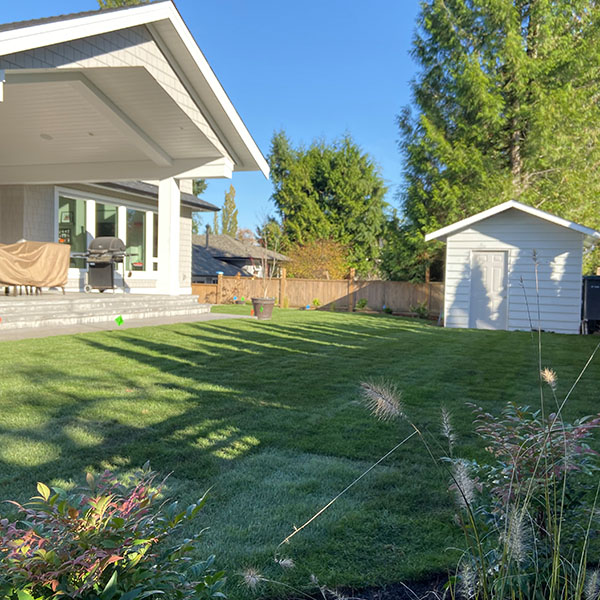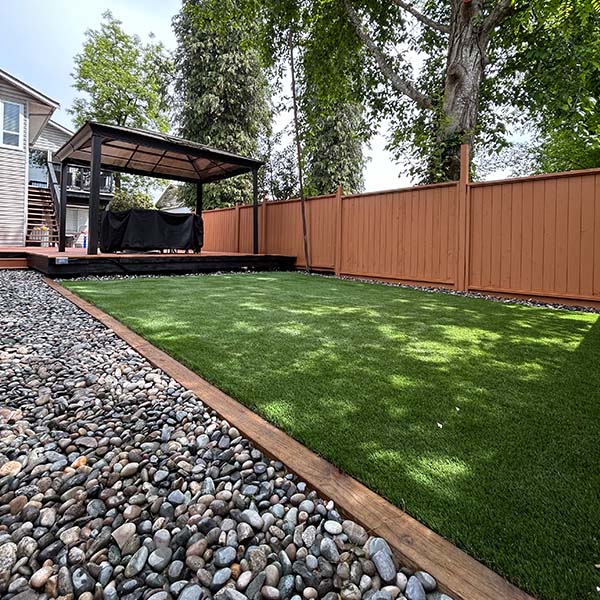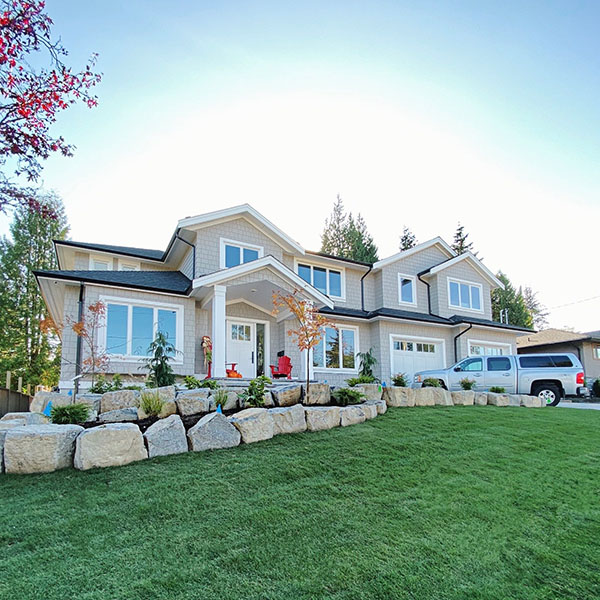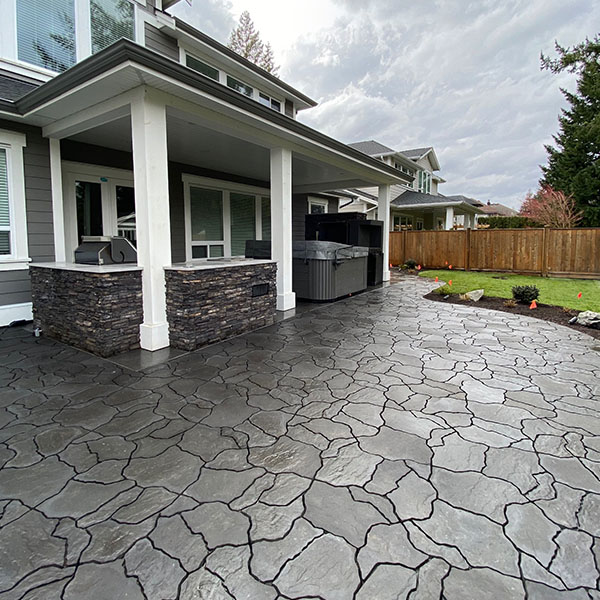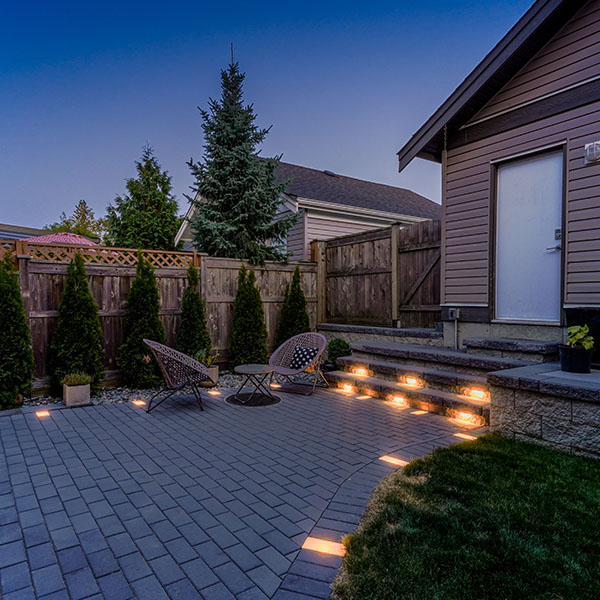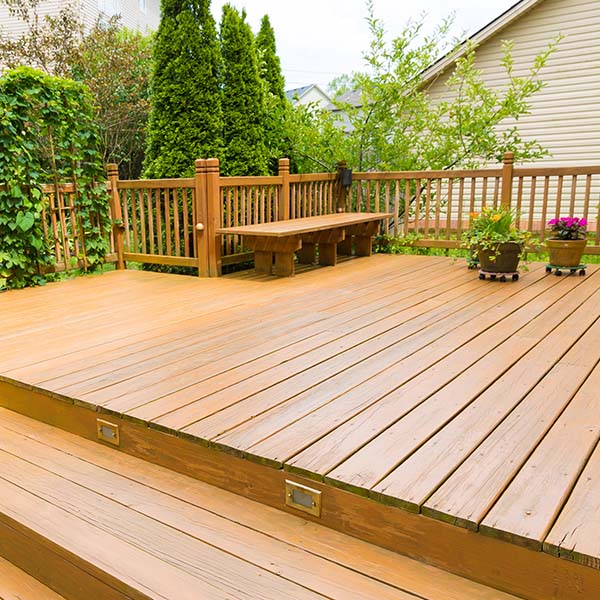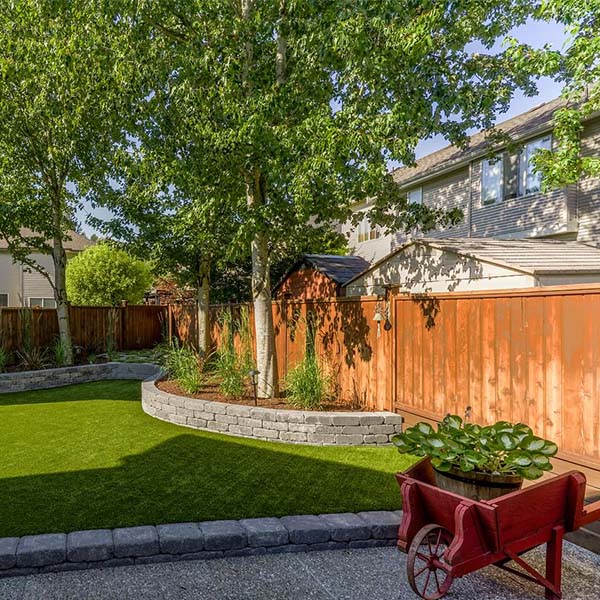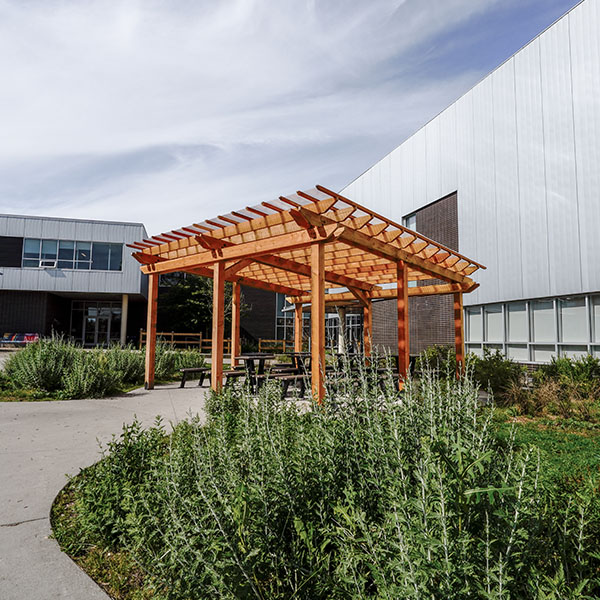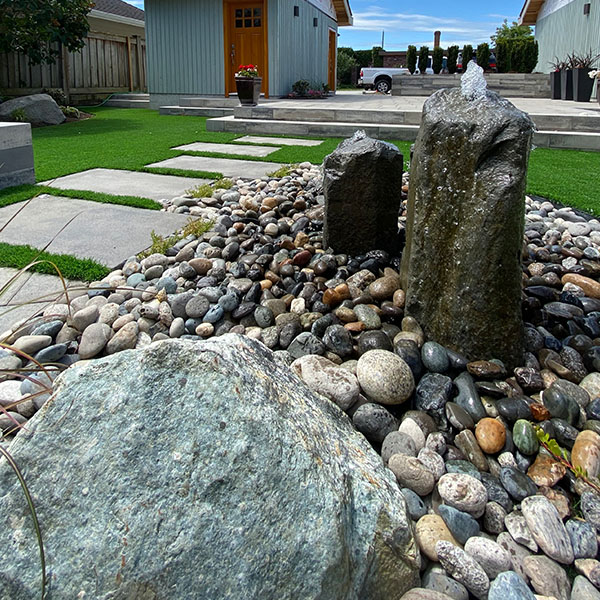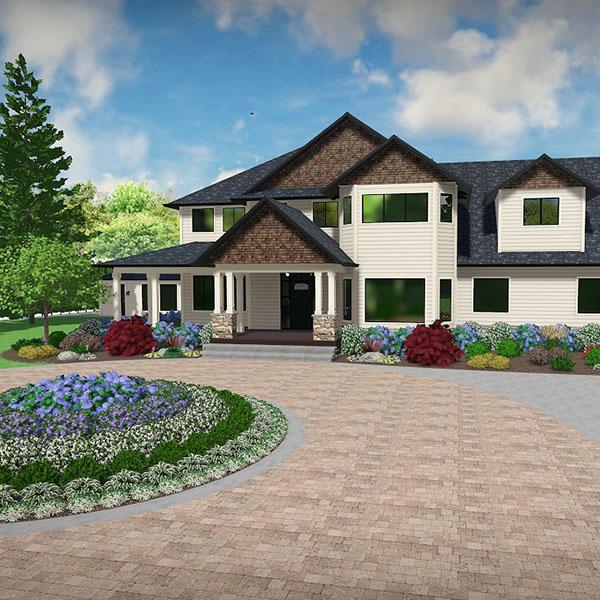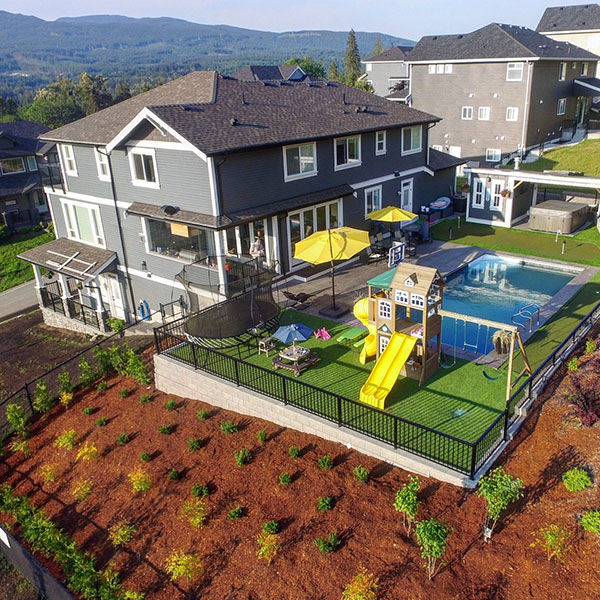Retaining Walls
Increase the Amount of Functional Space in Your Yard or on Your Property
Retaining walls are generally required in areas where there are large changes in elevation; they prevent erosion and collapsing of soil and sub-grade materials. Retaining walls are most commonly used to create usable spaces on sloped or uneven terrain. There are multiple types of retaining walls; look below to see which would be best for you.
Slide to see before and after transformation.
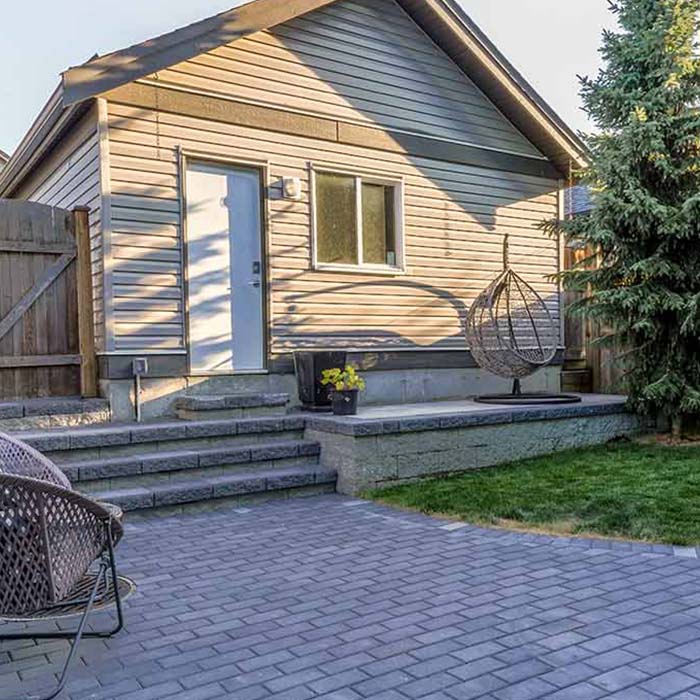
Types of Retaining Walls
- Concrete Block: These walls are constructed using modular concrete blocks that stack together. There are various styles to choose from whether it be color, size or texture.
- Concrete: These walls are typically constructed with an underground footing and use rebar to reinforce them. These have fewer aesthetic options than concrete block walls but will normally last longer.
- Wood: These walls are constructed using pressure treated wood and are typically cheaper than other options. Very limited on aesthetic options as staining is the only option for changing the look of the wall.
- Natural Stone: These walls are constructed using large boulders. There are lots of different colors, sizes, textures and shapes for boulders, however price varies heavily depending on the type of boulders that are chosen.
- Garden Walls: Garden walls are walls that are 2’ or shorter and typically border a garden or planting area. This includes decorative walls, planter walls & boundary walls. These can be built out of natural stone, wood or concrete.
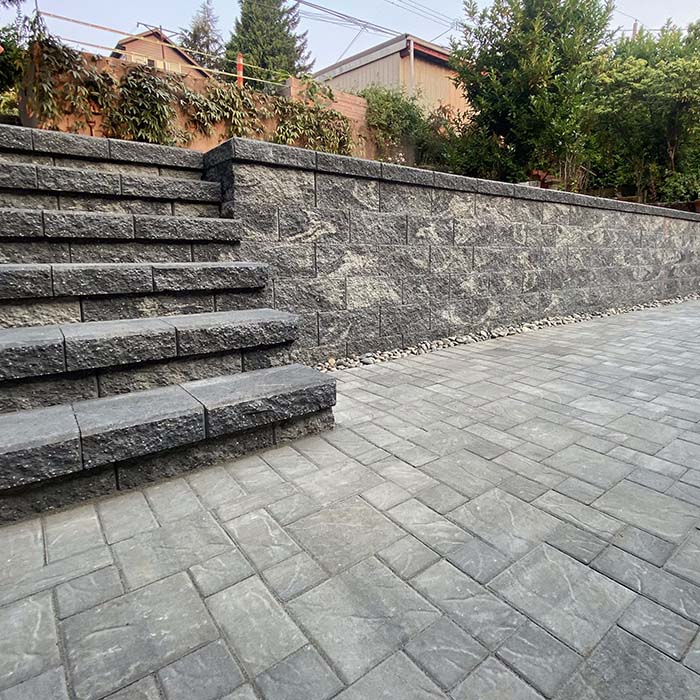
Advantages of Concrete Block Walls
- Maintenance: Concrete block walls have extremely low maintenance after installation. You can pressure wash your wall if you wish, however it is not required.
- Durability & Longevity: Concrete block walls can withstand extreme weather conditions and have a very long lifespan.
- Cost: While the upfront cost of a concrete block wall may be more expensive you will save money in the long run because you will not have to replace your wall like you will with a wood wall.
- Aesthetic: Concrete blocks come in many different shapes, sizes, colors, and textures allowing you to choose a product that fits your vision.
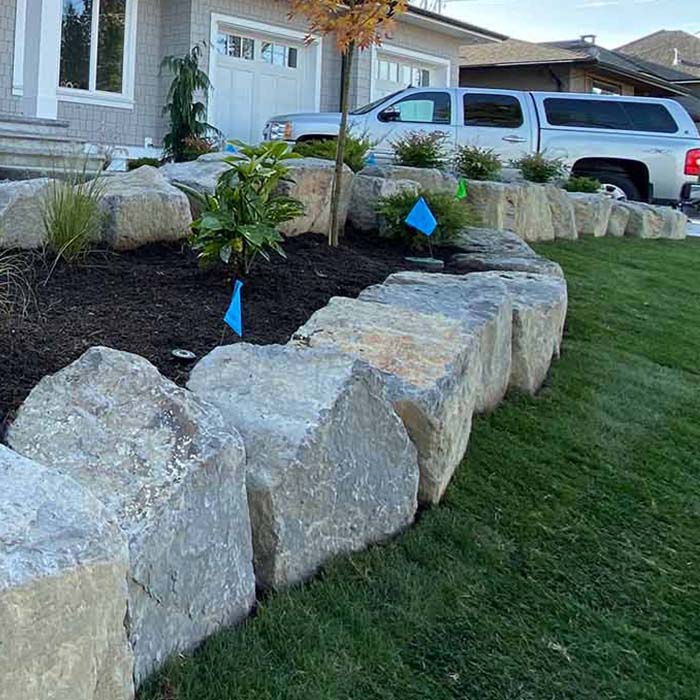
Advantages of Natural Stone Walls
- Maintenance: Natural stone walls have little to no maintenance.
- Durability & Longevity: Natural stone walls are very resistant to wear and tear making them a good choice for long-lasting applications.
- Cost: The cost of a natural stone wall varies depending on the type of stone that you choose but choosing locally sourced stones can often be quite cost effective.
- Aesthetics: Natural stone walls have a very unique look; standing out from the rest of the options. Each stone is individually unique, and there are lots of options of stones to choose from.
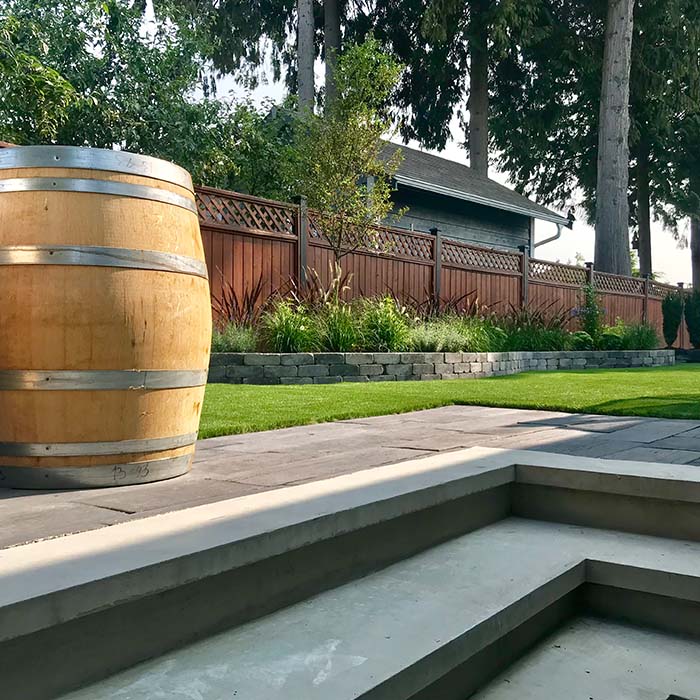
Advantages of Concrete Walls
- Maintenance: Concrete walls have extremely low maintenance after installation. You can pressure wash your wall if you wish, however it is not required.
- Durability & Longevity: Concrete walls can withstand extreme weather conditions and have a very long lifespan.
- Cost: While the upfront cost of a concrete wall may be more expensive you will save money in the long run because you will not have to replace your wall like you will with a wood wall.
- Aesthetics: Concrete walls can be finished in a variety of ways to suit different styles, from smooth and polished to rough and textured. There is also the option of tinting your concrete, however this comes with added cost.
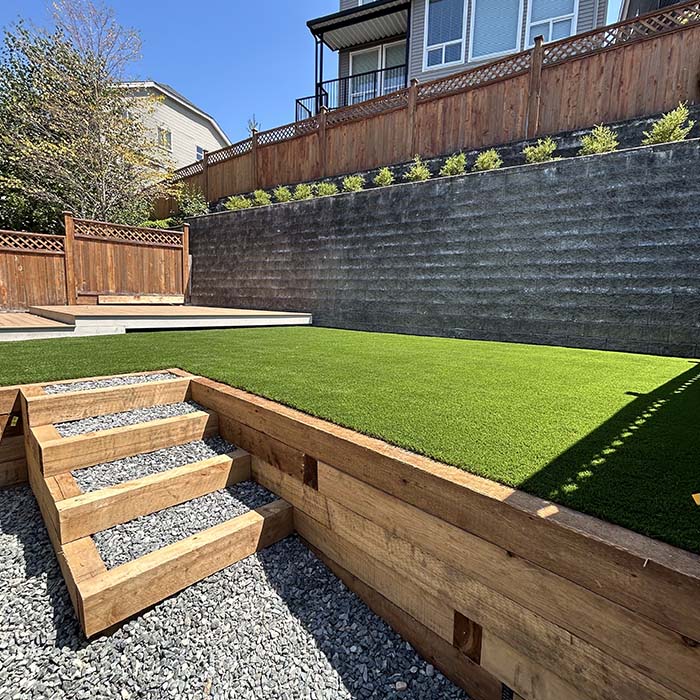
Advantages of Wood Walls
- Cost: Wood walls are usually the most cost-effective option for those on a budget.
- Aesthetics: Many people like the natural appearance of wood as it provides a more organic aesthetic to the area.
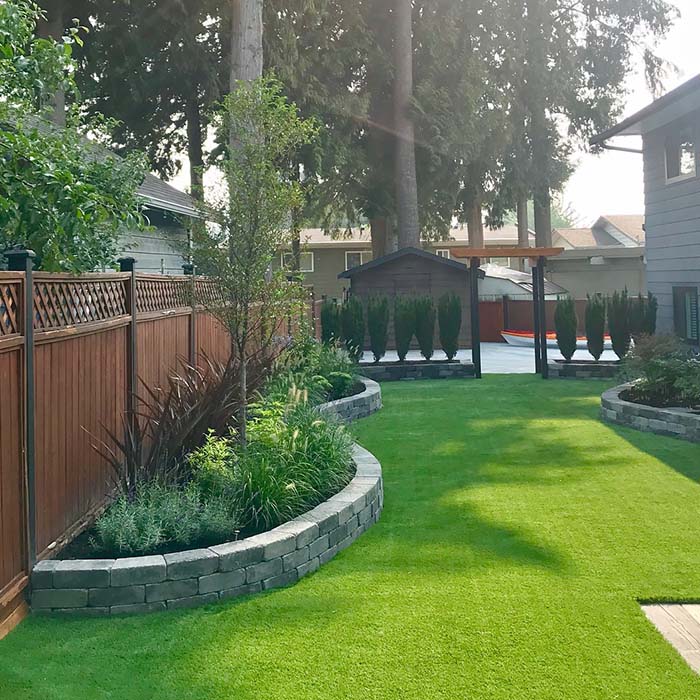
Garden Walls
Garden walls are retaining walls that are 2’ or shorter which serve both a functional and aesthetic purpose. There are multiple styles, materials, and designs that can be used. Garden edging is also built out of the same materials.
- Dry Stack Walls: These walls are constructed without mortar by stacking stones on top of each other. These walls have a beautiful natural, rustic appearance.
- Concrete Walls: These walls are constructed using either poured concrete or precast concrete blocks and have lots of options in color, texture, and size. They have a cleaner, more modern or contemporary appearance usually.
- Stone Walls: These walls are constructed by using small to medium sized boulders and are very similar to dry stack walls with a natural, rustic appearance.
- Wood Walls: These walls are constructed using pressure-treated wood planks or beams. They also fit the natural aesthetic.
Contact Us
Contact us today for your complimentary project consultation.

